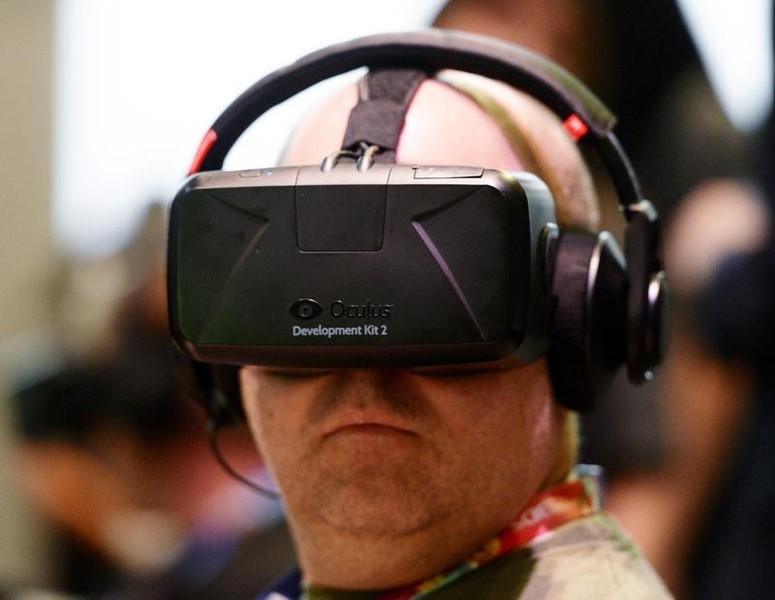By Piya Sinha-Roy
PARK CITY, Utah (Reuters) - Facebook Inc's Oculus VR is getting into movies with an in-house studio dedicated to making virtual-reality films and will show its first short movie at the Sundance Film Festival on Monday, the company said.
Tapping talent from both Pixar, the animation studio behind computer graphics imagery (CGI) films including "Toy Story" and "Monsters Inc," and the video gaming world, Oculus' Story Studio will develop film content for virtual reality and advise other filmmakers seeking to try the technology.
Facebook bought Oculus last year for $2 billion (1.32 billion pounds). So far the business has largely focused on video games for its pioneering wrap-around Rift headset.
But virtual reality has recently been enticing Hollywood's filmmakers to expand into the 360-degree panoramic view offered by headsets.
At the annual Sundance Festival in Park City, Utah, part of the event has been dedicated to virtual-reality short movies by filmmakers including Chris Milk and Felix & Paul, to draw the independent film community.
"I think the (film) community has done a really good job about getting excited about VR and starting to work on things in VR," said Oculus Chief Executive Officer Brendan Iribe.
Oculus also hopes to explore VR film experiences in real time, which would allow viewers to interact inside the headset with objects and characters, he said.
"This is really tuning in to what a lot of people who are extending 360-degree film into VR cannot do yet. It's getting into the heart and soul and magic of VR."
Oculus will debut the short film "Lost" at Sundance, which the in-house studio developed over the past six months. "Lost" is designed to be interactive and is between 4 and 10 minutes long, depending on the viewer's interactive choices.
But virtual-reality films are still a long way from becoming mainstream as the headsets to display them have yet to reach the mass market.
While Samsung Electronics Co Ltd offers its Galaxy Gear VR headset with its Galaxy Note 4 smartphone and Google Inc has its Cardboard VR device to use with smartphones, the consumer version of Oculus' Rift headset is still in development.
There are also technological and creative constraints to developing film in virtual reality, said Saschka Unseld, a Pixar veteran who is now creative director of Oculus' Story Studio. Challenges include computers running too slowly to handle the intensive rendering of graphics in real time, as well as how to find a format for storytelling in a 360-degree environment where the viewer can look anywhere.
"Film has very linear storytelling, it's one-dimensional," Unseld said. "In VR, you need to find a three-dimensional way of telling the story where the space around you matters."
